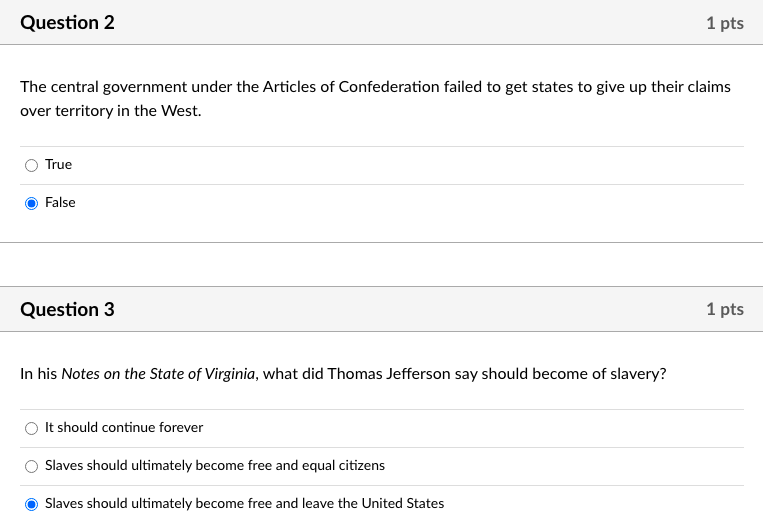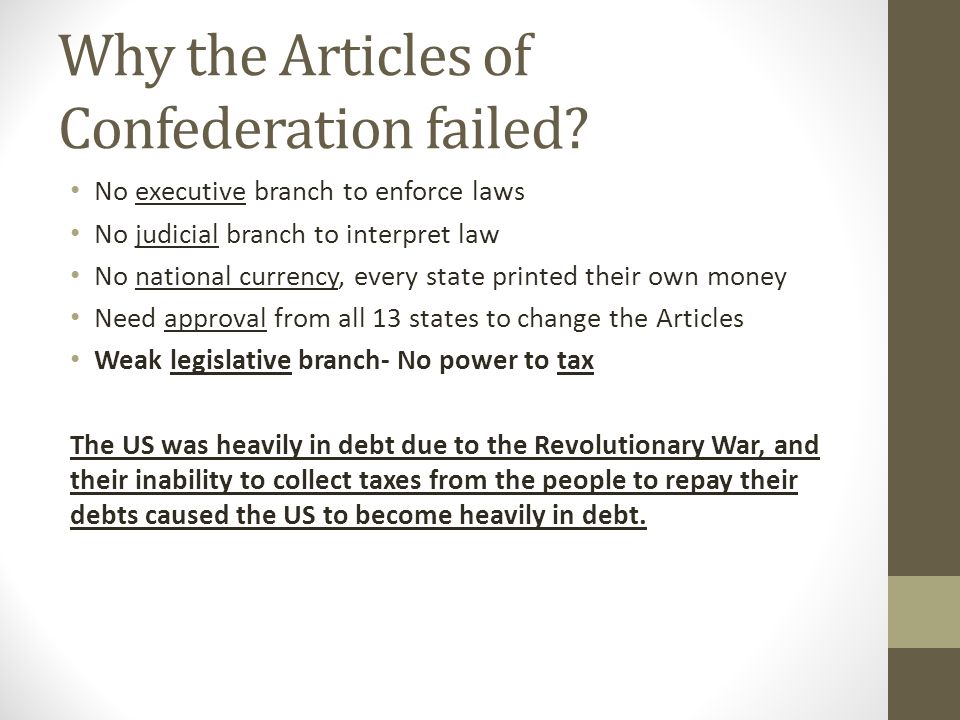The Articles of Confederation were the first attempt at creating a national government for the newly independent United States. However, despite their good intentions, the Articles ultimately proved to be a failure and were replaced by the Constitution in 1789. There are several reasons why the Articles of Confederation failed.
One reason for the failure of the Articles was the lack of a strong central government. The Articles established a weak federal government with limited powers, which was intended to protect the sovereignty of the states. However, this lack of a strong central government proved to be a major problem, as it was unable to effectively deal with the numerous issues facing the young nation. For example, the federal government was unable to regulate trade between the states, which led to economic chaos and trade disputes. The federal government also lacked the power to levy taxes, which made it difficult for it to fund necessary programs and pay off its debts.
Another reason for the failure of the Articles was the lack of a judiciary branch. The Articles did not establish a federal court system, which meant that there was no way to resolve disputes between the states or between the federal government and the states. This lack of a judiciary branch made it difficult for the federal government to enforce its laws and regulations, and contributed to the overall weakness of the government.
In addition, the Articles of Confederation did not provide for a strong executive branch. The Articles established a one-year term for the president and gave him very little power. The president had no veto power and could not even appoint federal judges. This lack of an effective executive branch made it difficult for the federal government to make and enforce decisions, and contributed to the overall ineffectiveness of the government.
Finally, the Articles of Confederation did not provide for a system of representation that accurately reflected the size and population of the states. Each state was given one vote in the Confederation Congress, regardless of its size or population. This meant that small states had the same level of representation as large states, which led to conflicts and tensions between the states.
Overall, the Articles of Confederation failed because they did not provide for a strong, effective national government. The lack of a central government with sufficient powers, a judiciary branch, an effective executive branch, and a fair system of representation all contributed to the failure of the Articles. The Constitution, which was adopted in 1789, addressed these issues and provided for a stronger, more effective federal government that has lasted to this day.







